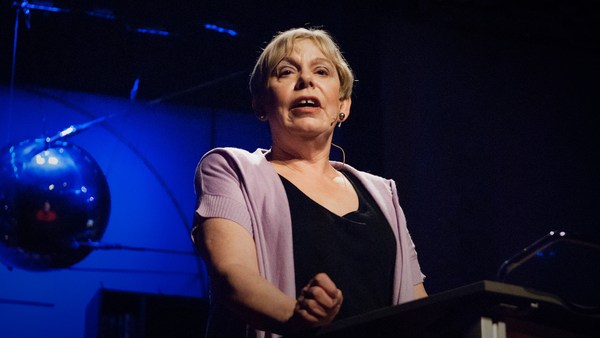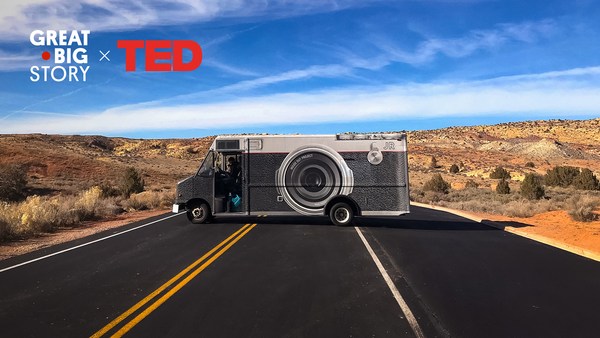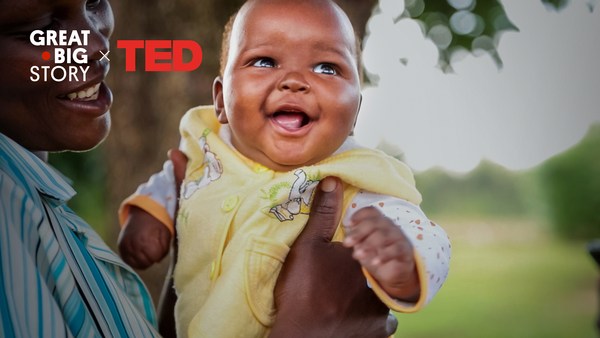As a result of my studies, I found a thread, that the essence of religion was compassion. That every single one of the major world religions -- Judaism, Islam, Christianity, Hinduism, Buddhism and Confucianism ... they all insisted on what's often known as the Golden Rule: never treat others as you would not like to be treated yourself. My wish was that you would get a panel of activists and together, we would craft a charter, a brief statement reminding the world that this is what religion is about.
[Great big story in partnership with TED]
Narrator: They had a big idea to change the world. But they couldn't do it alone.
(Voices overlapping) So, my wish ... My wish ... I wish ... And now, here's my wish.
[Torchbearers]
[Ideas in action]
(Shouting, fire crackling)
KA: Our nations seem to be crumbling by the day. And this should make us uncomfortable. We've all got huge problems in our cities. Problems of inequity and cruelty and violence. So, what can we do? What can we do to change things? Every city has to be compassionate. And people often ask me, what should a compassionate city be like? And I said, "Well, a compassionate city should be an uncomfortable city." One is Louisville, Kentucky, where the mayor, Greg Fischer, actually campaigned on the idea of compassion.
[Greg Fischer, mayor of Louisville, KY]
Greg Fischer: When I announced compassion as a city value, it got a lot of attention. A city is a platform for human potential to come alive. Compassion makes individuals stronger and makes our city stronger.
KA: People just can't call themselves a compassionate city, unless they've got a practical course of action.
GF: So the questions then is, how do you bring compassion to life? How do you change the culture of your city? What if you could start at the beginning of a young child's life?
(Clock ticking)
My name is Meghann Clem Mattingly. I am the Compassionate Schools Project teacher. Compassion is a very teachable thing. OK, I see a lot of friends who are looking ready. Every CSP class begins with calming and focusing. And then we have some sort of core practice that we're doing whether we're talking about self-awareness or empathy-building skills. We are starting at the ground level, we're building that foundation for our students at age five and up, to be more compassionate citizens.
Kid: Leave me alone! MCM: Jeremy. Look at Ms Mattingly, Jeremy.
Jeremiah: Just go, count me out.
MCM: Jeremiah, we're going to try harder to get our self-regulation back, sir.
Jeremiah: This is the second reason I hate my life.
MCM: Jeremiah, come here, I need you to tell me more about that.
MCM: Anger or frustration, which feeling was bringing -- Anger, I can tell. Look at your hands. So, before we talk about it, can you calm yourself down? No? it's hard to, isn't it? Can you try to make your hands look like mine? Look. Can you try to let go of that? Look at your face, I see a smile there. You're trying real hard to hang on to that anger.
I see every day these changes happening in these students. And I have all the hope in the world that this project will change our education.
GF: We define compassion as respect for each and every one of our citizens so that their human potential is flourishing, thriving.
(Many voices) Grant me the serenity to accept the things that I cannot change, the courage to change the things that I can and the wisdom to know the difference, just for today. Keep coming back, it works.
GF: Hotel Louisville is a great example of how to think about a whole system of getting a person back on track. So it's a shelter for women and their families, but it's also an operating hotel.
Cynthia Brown: Hotel Louisville was not just a women's rehab facility, it is a workforce program. We run the hotel, we do all the jobs here. Every job that one of us has has their own individual skills. It gets us a sense of responsibility, because we can put this on our resumes when we leave. I think the compassion really comes from the girls that are in the rehab because we depend on each other a lot. We need each other.
(Overlapping voices)
If I was not here at Hotel Louisville, I would be sitting in jail, doing my time. I was given that chance. And I just -- I want to live, I want to live life.
[Remind yourself: You can do this You are a good person]
GF: It lifts us all up to say, this is the kind of city we are, and this is the kind of city we aspire to be. And that any way we can help other cities and take us to even greater heights is what we want to do. It's this ripple effect; we're not perfect as a city, but boy, we're working to be better every day.
KA: Here you have a city which is doing great things with compassion. Cities and mayors are going to play an important role as leaders of the future. I'd like to see a thousand compassionate cities in the next decade that remind the rest of the world what our duty is. Always treat all others as you'd like to be treated yourself.
[Share and sign the Charter for Compassion] [CharterForCompassion.org]


